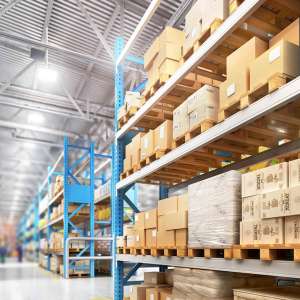Keeping a stockroom in order can seem like an exercise in futility. An entire warehouse – heck, even multiple warehouses? It can be a business owner’s worst nightmare. After all, good logistics and warehouse management are about taming chaos, not adding to it.
Whether you manage your own warehouse and inventory directly or go with a third-party logistics partner, there are always ways to tune up your logistics processes. Even if you prefer to be hands-off, there are still some tricks of the trade you should keep in mind to save time, money, and stress.
In this article, we’ll explore some of the most common mistakes in warehouse management and a few 3PL strategies you can use – either with your preferred partner or as you try to implement them yourself.
Common Warehouse Management Mistakes to Avoid
Having an organized and efficient warehouse is tantamount to your business’s success. Regardless if you own a brick-and-mortar store, an eCommerce site, or something in between, without good processes to manage your inventory and where it’s going, your business will inevitably implode under the weight of all those products.
Some of the most common warehouse problems include:
- Outdated inventory and warehouse management systems – even in the year 2023, some businesses prefer managing their inventories by hand. While others might prefer Excel on a tablet, there are plenty of warehouse management systems built specifically to… well… make managing your warehouse a breeze. However, the biggest barrier here is twofold: cost and the time it takes to train and adopt a new process to replace one that might’ve been in use for decades.
- Labor and space rigidity – as a business grows, so does the demand of its customers. More customers means more products being sent to the sales floor or in delivery orders. A big mistake here is to continue to scale without really scaling, operating in a space you’re rapidly outgrowing with staff that can’t keep up.
- Broken or slow fulfillment processes – the two problems above create a third issue: processes begin to break down. Without adapting to customer demand and industry best practices while failing to equip your team with the means to succeed in a warehouse space with some breathing room, fulfillment slows down, upsetting customers with wrong or late orders – if those orders even make it out the door.
- Poor safety and insurance practices – in an attempt to save money, some businesses may attempt to opt out of insurance for their warehouses (and the goods inside) as well as skirt safety policies. You don’t need us to tell you this is a boneheaded move, but it’s still worth mentioning.
How Can Companies Benefit from 3PL Warehouse Strategies?
As experts in third-party logistics, we’ve had plenty of time to learn the ins and outs of what makes for an effective, efficient, and safe warehouse. While this list isn’t exhaustive, here are some of the most impactful benefits of either working with a 3PL company or applying our knowledge to your warehouses.
Economies of Scale
Because 3PL warehouses and fulfillment centers consolidate shipments on behalf of multiple businesses and organizations, they’re in an advantageous position to negotiate better shipping rates. In turn, they pass the savings onto their clients, enabling them to keep their costs down and improve customer service with lower or free shipping rates.
Advanced Technology
If your business doesn’t have the time, money, or willingness to invest in a new warehouse management system, partnering with a third party to handle your fulfillment can be a lucrative choice. Since 3PLs specialize in logistics, they’re usually ahead in adopting new technology to automate and optimize their operations. This saves them money and time by reducing labor costs, and making warehouse processes easier, safer, and more transparent.
Performance Metrics
All that technology makes collecting data on order speed, accuracy, quantity, and handling a breeze. By gathering these data-driven insights into supply chain performance – from identifying popular items and their seasonality to sell them better to finding ways to be more efficient on the warehouse floor – you can find other opportunities that either minimize costs while maximizing revenue.
Logistics Expertise
Learning the ins and outs of supply chain management will give you a leg up when addressing your warehouse’s problems. Though if you don’t have the time or interest, having a 3PL expert allows you to tap industry knowledge to optimize transportation routes, reduce shipping distance, and minimize fuel and packaging costs.
Network Optimization
Logistics expertise also allows your business to optimize its supply chain network. By leveraging a network of distribution centers strategically, you can identify ways to reduce shipping distances, transit times, and all associated costs. This is also useful if your company is interested in sustainable practices; finding shorter distances that use less fuel means better cost savings and less greenhouse gas emissions.
Operational Scalability
With a 3PL partner, you’re no longer limited to your own warehouse (or, if you’re running an eCommerce business out of your home, the spare bedroom or garage). A third-party fulfillment center offers flexible space and services that can adapt to changing demand and seasonality, preventing businesses from overcommitting and incurring unnecessary costs.
Risk Mitigation
As experts in their industry, 3PLs know everything there is to know about regulatory compliance, insurance, and risk management. This shields themselves and the companies they work with from potential penalties and legal costs while also protecting those working in their spaces.
Reduced Overhead
Because 3PLs already have warehousing infrastructure, there’s no need for your business to reinvent the wheel. By outsourcing even a portion of your fulfillment and storage needs to a 3PL partner, you can cut down on fixed costs such as warehouse rent.
Focus on Core Competencies
Finally, good business acumen dictates that everyone plays to their strengths. Salespeople should be in charge of sales; accountants should draw up and manage budgets; procurement experts should negotiate deals for new products to sell; and warehouse managers should know how to keep your supply chain moving. By working closely with a 3PL provider, you can concentrate on your core business activities, leaving the logistics to experts.
Avoid Making Warehouse Mistakes with UCanTrade
Keeping your warehouse organized, efficient, and safe is more important than ever. As eCommerce continues to grow and with so much economic uncertainty in the form of rising costs and mercurial consumers trying to make ends meet, poor supply chain management can easily sink your business. But you don’t need to handle the chaos alone.
Reach out to us today to learn more about how the experts at UCanTrade can help you keep your inventory in line.



